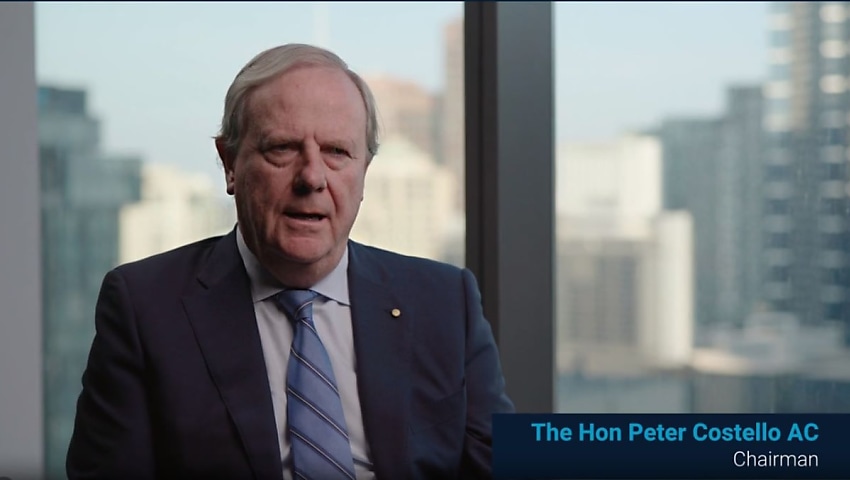Investigation into Australia’s sovereign wealth fund and single-largest financial asset, the Future Fund, has revealed significant investment into the international defence market.
To continue reading the rest of this article, please log in.
Create free account to get unlimited news articles and more!
Established in 2006 to strengthen the Commonwealth’s long-term financial position, the now-$202 billion Future Fund is managed on behalf of and independently from the Australian federal government.
The fund was originally founded out of 2004, 2005, and 2006 budget surpluses amounting to $51.3 billion and $9.2 billion in Telstra shares deposited to the fund.
Documents obtained by Greens senator David Shoebridge under a freedom of information request in October this year revealed the Future Fund has invested more than $600 million in public funds into defence companies.
The information outlined direct holdings in 30 defence and aerospace companies including Thales ($3.5 million), Lockheed Martin ($71 million), BAE Systems ($26 million), Airbus ($7.9 million), Rheinmetall ($8.6 million), Boeing ($10.7 million), CAE ($3.4 million), Northrop Grumman ($43 million), General Dynamics ($63 million), Rocket Lab USA ($192 million), Huntington Ingalls ($8.6 million), Textron ($16 million), L3Harris ($26 million), Elbit Systems ($488,768) and others.
The fund’s board has invested nearly half a million dollars into Israel-based Elbit Systems despite the Future Fund being banned from investing in Elbit Systems since at least 2021 due to “exclusions related to military weapons-related conventions or treaties ratified by Australia”, according to Senator Shoebridge.
“The Albanese government needs to introduce mandatory ethical investment rules for the Future Fund and that must absolutely include a prohibition on investing in weapon manufacturers.
“Elbit Systems is meant to be excluded from the Future Fund’s investment choices because of exclusions related to military weapons-related conventions and treaties ratified by Australia,” he said.
“The Future Fund’s board needs to explain how it continues to invest in Elbit Systems despite the publicly announced direction it gave to withdraw those funds because of Australia’s international legal obligations.
“Elbit Systems is also deeply implicated in the current destruction in Gaza where a suite of its weapons are deployed from artillery pieces to drones.
“The Future Fund is meant to benefit future generations. That rings very hollow when they are investing in companies making equipment that ends future generations.”
Peter Costello, Future Fund founder, current chairman of the Future Fund Board of Guardians, and former Australian treasurer, said the fund is evidence of long-range thinking in long-term investment for the future.
“The Australian Future Fund, with earnings of $144.4 billion on the original capital of $60.5 billion, is wholly owned by the Australian government. It is a sovereign fund, a sovereign asset,” he said during a keynote speech at UBS Australasia Conference on 13 November this year.
“Since the Future Fund was established, the government has asked its managing authority, the board of guardians, to manage other funds as well. In total, these five funds amount to around $50 billion. But they are separate to the Future Fund with different purposes and different investment mandates.
“The purpose of the Future Fund is intergenerational wealth transfer. Budget surpluses set aside at a time when the Australian government had net assets were given to the Fund to invest. The accumulated sum is preserved and carried forward to set off against government liabilities including the $900 billion borrowed since then.
“So the Future Fund is an asset on the Commonwealth balance sheet, its largest by far. It strengthens the balance sheet and buttresses the credit rating. If it didn’t exist, the government finances would be considerably weaker. In fact, the balance sheet would be only a ‘liability sheet’ and this generation would be significantly worse off.”
Costello said it’s important that the fund guardians have the strength and stature to defend the fund from foolhardy schemes to spend it and retain a clear focus on the long-term benefit of future Australians.
Greens Finance spokesperson Senator Barbara Pocock said the party believes many Australians would be distressed to find that their sovereign wealth fund is being used in a variety of ways that conflict with basic moral and ethical principles.
“We’ve been looking at some of the investments the Future Fund has been making through an ethical lens and found some very questionable products including fossil fuel ventures, gambling, and now this, weapons manufacturing that could be contributing to the deaths of innocent civilians,” Senator Pocock said.
“We need to review the investment guidelines that govern the Future Fund and put some restrictions in place so that Australians can live with a clear conscience, knowing that our investments are making the world a better place and not the opposite.”

 Login
Login







